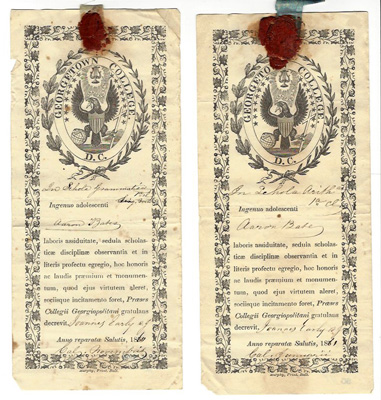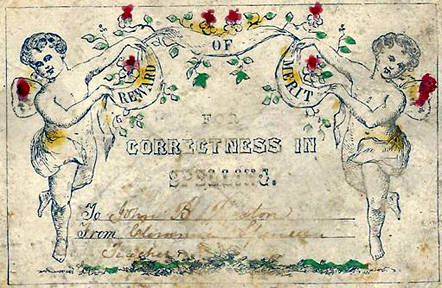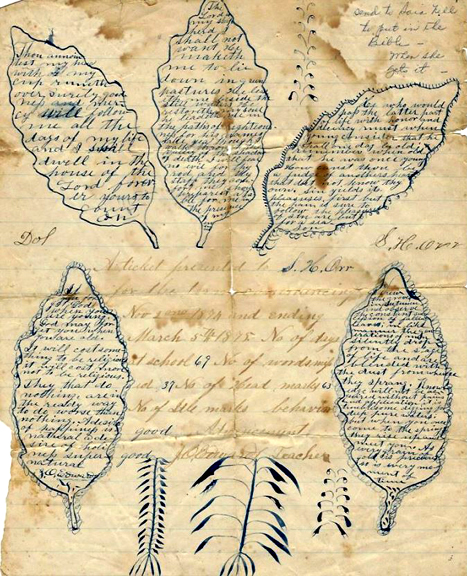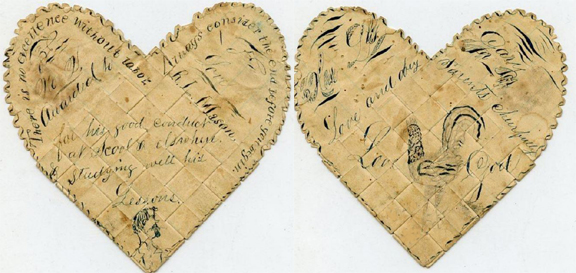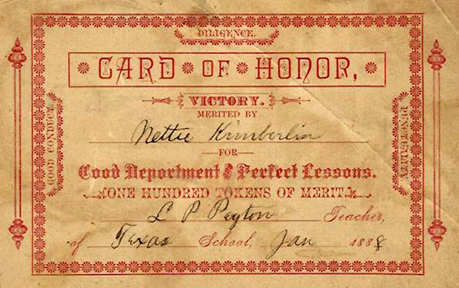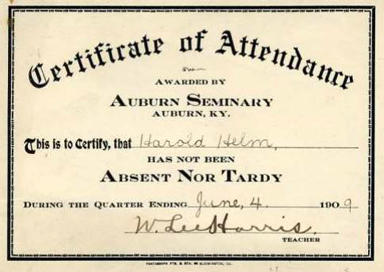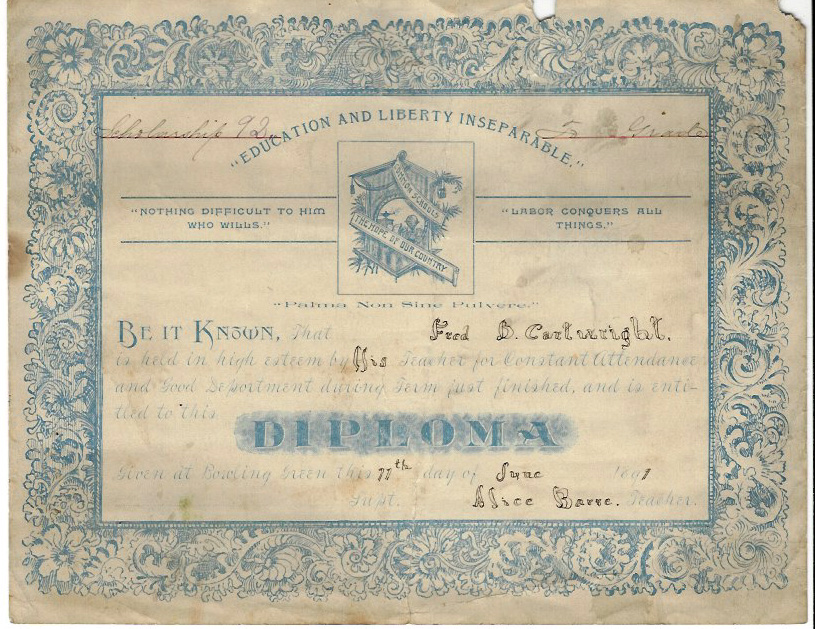As December unfolds and students across the country strive to earn the acclamation of their teachers, not only for academic achievement but for associated good behavior, here are a few historical examples of such awards from among the keepsakes of young 19th-century scholars and their families:
In 1860-61, 14-year-old Aaron Bate received awards from Washington, D.C.’s Georgetown College for grammar and arithmetic (one hopes the Ingenuo adolescenti was also proficient in Latin, the language in which the citations were written).
On June 14, 1864, 13-year-old John Bowker Preston’s teacher presented him with a Reward of Merit card on which two prancing cherubs celebrated his aptitude for spelling.
In Grayson County, Texas, teacher J. O. Edwards filled in pupil S. H. Orr’s evaluation ticket for the fall 1875 term commending him for attendance, good behavior, “No. of words missed” (low; a spelling score, maybe?) and “No. of Head marks” (high). The memento then appears to have been supplemented with inspirational quotations, classmates’ autographs, and instructions to a relative to “put in the Bible when she gets it.”
Also in 1875 but in Grayson County, Kentucky, Harrison L. Gary (though not himself a perfect speller) commended 9-year-old John Robert Lee Mason “for his good conduct at Scool & elswhere studying well his Lessons,” with further admonitions to “Love and obey Parents cheerfully” and “Always consider the end before you begin.”
In 1888, “One Hundred Tokens of Merit” came to 11-year-old Nettie Kimberlin, a pupil in Washington County, Kentucky. For “Good Deportment and Perfect Lessons,” read the “Card of Honor.”
In June 1909, Logan County’s Auburn Seminary awarded Harold Helm a certificate for being neither absent nor even tardy during the preceding quarter.
In 1891, Bowling Green’s public schools gave the nod to Fred Cartwright for attendance and good deportment.
These commendations are part of the Manuscripts & Folklife Archives of WKU’s Special Collections Library. Click on the links to access finding aids. For more collections, search TopSCHOLAR and KenCat.

